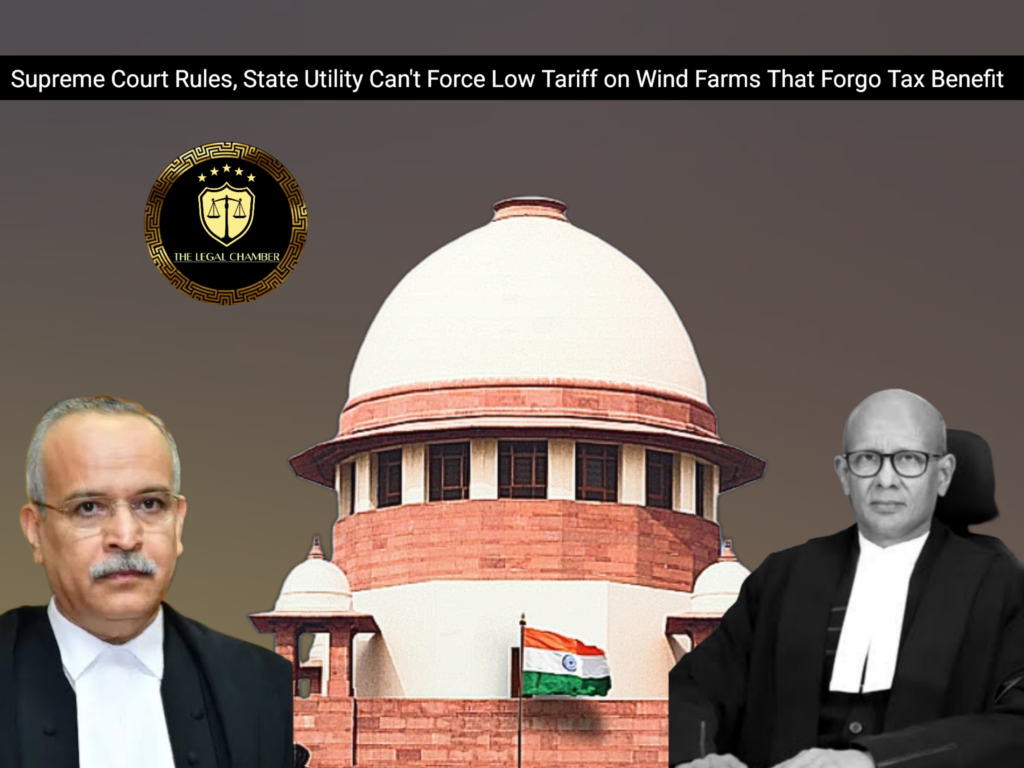
The Supreme Court held that the tariff determined by the regulatory commission is statutory and not merely contractual. A power purchase agreement cannot bind a generating company to a tariff that is inapplicable if it does not avail of accelerated depreciation, as the commission must determine the tariff on a case-to-case basis as per its orders.
Facts Of The Case:
Procedural History:
The procedural history began with the four respondent wind energy companies filing separate petitions before the Gujarat Electricity Regulatory Commission (GERC) in 2012 and 2013, seeking project-specific tariff determinations as they had not availed accelerated depreciation. The GERC ruled in their favour. GUVNL then appealed these orders to the Appellate Tribunal for Electricity (APTEL), which dismissed the appeals and confirmed the GERC’s findings through a common judgment dated September 28, 2015. Subsequently, GUVNL invoked the Supreme Court’s civil appellate jurisdiction by filing the present statutory appeals, which were ultimately dismissed, upholding the orders of both the GERC and the APTEL.
READ ALSO :Betrayal of Trust is Demonic: Supreme Court’s Powerful Stand on Incest & POCSO Act Upholds Life Term for Father Who Raped Minor Daughter
Court Observation:
The Court observed that the tariff determined by the regulatory commission is statutory in nature and supersedes any contractual terms in a Power Purchase Agreement (PPA). It held that GUVNL, as a state instrumentality, cannot bind generators to a tariff explicitly meant for projects availing accelerated depreciation when they had not done so. The right to seek a case-specific tariff determination, as envisaged in the GERC’s order, is an inherent statutory right of the generator. The Court further noted that GUVNL’s failure to secure a commitment from the generators to avail accelerated depreciation precluded it from insisting on the lower tariff, and its conduct was contrary to its duty to promote renewable energy policies.
Final Decision & Judgement:
The Supreme Court dismissed GUVNL’s appeals, upholding the decisions of the GERC and APTEL. The final judgement affirmed that the respondent companies were entitled to a project-specific tariff determination by the GERC, as they had not availed accelerated depreciation. The fixed tariff in the PPAs was declared inapplicable to them, and the statutory right to have the commission determine the correct tariff prevailed over the contractual terms.